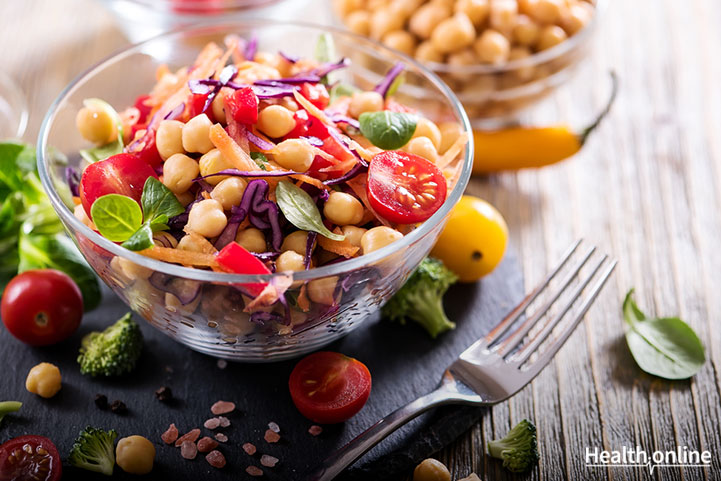
Losing Weight on a Vegan Diet
‘Going Vegan’ has been the mantra of many fitness enthusiasts all over the word in recent times. The Vegan diet has been trending on the internet, with people searching for vegan recipes and vegan foods. This diet trend has been propelled by people’s quest for the perfect diet, as well as their concern for animals.
A vegan diet essentially removes all foods that come from animals. This means all kinds of meat, eggs, and even dairy, are not a part of the diet. Usually, a diet without meat is considered a vegetarian diet. The vegan diet takes this up a notch up by excluding dairy products as well. Going on a vegan diet is a major dietary change, and one has to carefully plan to include all the basic food groups in this diet.
Vegan Diet Foods
The answer to what is a vegan diet is fairly simple – no animal products. But what to eat in a vegan diet, and how to ensure to get complete nutrition from this diet, are more complex questions. When you shift to a vegan diet, you need to ensure you replace your protein, calcium, iron, vitamin B-12, and vitamin D sources. All these elements are abundantly available in animal products and essential for the functioning of the body.
However, there are as many sources of plant proteins as well. Some of them are lentils, beans (black, kidney, lima, pinto), peas (green, black-eyes, chickpeas), almonds and cashews. You can also get your fill of iron from green leafy vegetables, like spinach, and seeds, like a sunflower .
Vitamin B-12, that is naturally present in animal products, can be found in fortified breakfast cereal and plant based milk like almond milk and soy milk. Calcium is an essential mineral and required for healthy bones, clotting of blood, and functioning of the nervous system and the cardiovascular system. Along with calcium, you also need vitamin D, magnesium and potassium for the effective absorption of available calcium.
The biggest drawback of not having dairy is the lack of calcium. You can fulfil this by drinking fortified plant-based milk, green vegetables like spinach, kale and broccoli, sesame, figs and dates.
Losing Weight On a Vegan Diet
If you have been wondering, ‘Can I lose weight on a vegan diet?’ the answer is a resounding yes! Studies have shown that having a vegan diet is associated with greater weight loss than other diets. This is because with a vegan diet you are removing a lot of calories rich and cholesterol-laden foods. For instance, the chocolate you eat has milk in it, the fried chicken you regularly have has meat, and even cakes use eggs and cream! You will have to find alternatives for all these products, like replacing butter with the superfood- avocado , and therefore naturally make healthier choices. Given below are the reasons why a vegan diet helps you lose weight and stay healthy:
-
- Higher Fiber- A vegan diet is heavily based on vegetables and plant products which have higher fiber content. High fiber content leads to making you feel fuller and reduces hunger. It also leads to better digestion and a healthier digestive system. So, on a vegan diet, you will eat fewer calories and hence lose weight.
-
- Lesser calories – When you go on a vegan diet, the food that you replace animal-based food with will be comparatively lesser in calories. So, for example, if you replace ground beef with potatoes, you would save on calories. 100 grams of potatoes has 75 calories while 250 grams of ground beef has 250 calories! Lesser calories mean lesser weight .
-
- Better choices – While there are new restaurants and fast foods coming up that offer vegan choices, the majority of restaurants still offer non-vegan food. So when you head out for a lunch, you can stay away from all the tempting foods that are calorie laden!
-
- More Nutrition – Vegan Food is high in nutrients, minerals, and vitamins, which work wonders on your body. Vegan food also lowers cholesterol and blood sugar levels, thus building up your overall health.
So, opt for a vegan diet if you want to lose weight the natural and healthy way. Just remember to properly plan your diet so that it has all the nutrients you need.




